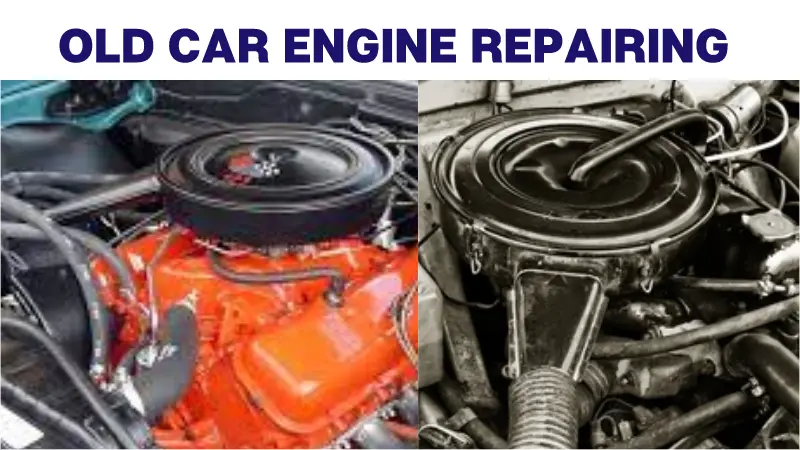Do diesel engines have spark plugs?

In diesel engines, spark plugs are absent as compression takes centre stage for ignition. Unlike petrol engines, which rely on spark plugs to ignite the fuel. Diesel engines utilise compression to generate the necessary heat for combustion. This unique combustion system highlights the efficiency of diesel technology . Where compression and fuel work synergistically to power cars and other vehicles.
What are spark plugs?
Spark plugs are crucial engine components that ignite the fuel-air mixture in engine cylinders, initiating the combustion process. Without spark plugs, petrol engines wouldn’t start or run smoothly, as they rely on these sparks to ensure proper combustion.
However, in diesel engines, spark plugs are absent, as combustion occurs through compression rather than ignition by a spark. Understanding the role of spark plugs elucidates the stark differences between petrol and diesel engines.
DO DIESEL ENGINES HAVE SPARK PLUGS?
In the realm of automotive engineering. The debate over spark plugs versus glow plugs in petrol and diesel engines respectively continues to intrigue enthusiasts. While petrol engines rely on spark plugs to ignite the air-fuel mixture, diesel engines utilise glow plugs to heat the combustion chamber. Ensuring efficient fuel combustion. Understanding the role of these components is crucial for maintaining optimal engine performance and reliability in both types of vehicles.
DIESEL VERSUS GAS ENGINES
In the realm of vehicular propulsion, the primary divergence between diesel and gasoline engines lies in their method of combustion. While diesel engines rely on compression ignition to combust the fuel-air mixture. Gasoline engines employ spark plugs to initiate the combustion process. This fundamental disparity yields distinct advantages and characteristics. Diesel engines, renowned for their robust torque output. Are favoured for heavy-duty applications such as hauling heavy loads and powering big rigs.
Conversely, gasoline engines, prized for their versatility and agility, cater to the needs of everyday drivers navigating city roads or towing leisure items like boats and trailers. Moreover, while diesel engines demand meticulous maintenance to sustain their performance, gasoline engines offer simpler upkeep and are more commonplace in the realm of consumer vehicles.
This divergence in utility and performance underscores the distinct roles each engine type plays in the automotive landscape, reflecting the varied demands and preferences of drivers worldwide.
HOW MANY SPARK PLUGS ARE IN A DIESEL
Diesel engines, unlike their gasoline counterparts, do not require spark plugs for ignition. Instead, they rely on compression to ignite the fuel mixture in the cylinders. This fundamental difference sets diesel engines apart, making them distinct in design and functionality. So, if you’re wondering, “Do diesel engines have spark plugs?” the answer is a resounding no.
WHY DIESEL ENGINES DON’T NEED SPARK PLUGS
In a diesel engine, the absence of spark plugs is compensated by the reliance on compression ignition. Instead of spark plugs, compression creates the necessary heat to ignite diesel fuel within the combustion chamber.
Glow plugs aid in cold starts by assisting in heating the chamber when temperatures are low. This difference in ignition mechanisms highlights the efficiency and ingenuity of diesel engines over gasoline counterparts.
How do I clean my spark plugs?
When dealing with the question “Do diesel engines have spark plugs,” it’s crucial to understand the fundamental differences between diesel and petrol engines. While petrol engines rely on spark plugs to ignite the air-fuel mixture, diesel engines use compression to achieve combustion.
However, this doesn’t mean that diesel engines are exempt from maintenance. Over time, grease and gunk can accumulate in diesel engines, affecting performance and efficiency. As a home mechanic, it’s essential to periodically inspect and clean the spark plug electrodes to ensure optimal performance.
Utilising carb spray cleaner and a wire brush, gently remove any ingrained dirt from the electrode tip. Wipe away any excess grease with a soft rag. Referencing your car manual, carefully torque the spark plugs back into place to prevent damage to the cylinder head.
Neglecting this maintenance can lead to misfires and trouble starting, especially in stop-start traffic or during short journeys. By staying confident and proactive, you can ensure your diesel engine continues to start smoothly, avoiding the struggle of wrong fuel or costly mechanic repairs.
How often do I need to change my spark plugs?
In gasoline engines, the frequency of spark plug replacement depends on factors such as the type of plug—copper, platinum, or iridium—and the manufacturer’s recommendation.
These components can last anywhere between 30,000 to 100,000 miles, but mechanics may suggest changes sooner if the car experiences engine issues like misfiring or trouble starting. Regular maintenance checks during a full service can help identify problems before they worsen, ensuring optimal engine performance.
Can I change my spark plugs myself?
As a home mechanic, tackling the task of changing spark plugs might seem daunting at first glance, but it’s a simple procedure that can be easily done with the right guide. Instructional pages or your car’s manual can provide valuable insights into the process. Confidence grows with each successful attempt, and soon you’ll find yourself adept at handling potential problems that may arise.
How much does it cost to change spark plugs?

Changing spark plugs in diesel engines can be a complicated process, often incorporated into a full car service. Timing issues are crucial to consider, as improper installation can lead to engine malfunction. While the cost may vary, shopping around for the best prices and seeking expert advice can help bring down expenses.
Benefits of Spark Plugs
- Absence in diesel engines simplifies ignition system
- Reduces maintenance needs and enhances reliability
- Minimises risk of misfires and ignition issues
- Ensures consistent performance
- Lowers operating costs with fewer parts to replace or service
Disadvantages of Spark Plugs
- Maintenance Costs and Hassle: The expense and hassle of regularly replacing spark plugs can be significant, especially for high-performance engines and vehicles operating in hot climates. Over time, dirty or worn spark plugs can negatively impact engine performance, necessitating costly repairs.
- Short Lifespan: Spark plugs are affected by heat and tend to wear out faster, requiring periodic replacement. This can result in increased maintenance costs and downtime for the vehicle.
- Technical Knowledge Requirement: Installing spark plugs correctly requires technical knowledge and expertise. Without proper installation, spark plugs may fail prematurely, leading to engine performance issues and potentially costly repairs.
- Performance Limitations: In high-performance engines, spark plugs may struggle to keep up with the demands of intense driving conditions, leading to diminished performance and reduced efficiency over time.
What are Glow Plugs?
In diesel engines, especially in colder climates, glow plugs play a vital role in preheating the combustion chamber, ensuring smooth ignition of the fuel for a quick start. Unlike spark plugs in gasoline engines, glow plugs act as heating elements, quickly warming the air within the combustion chamber to facilitate efficient combustion.
GLOW PLUGS IN DIESEL ENGINES
In diesel engines, glow plugs play a crucial role in igniting the diesel fuel within the combustion chamber. Unlike spark plugs in gas motors, glow plugs use heat to warm up the combustion area, aiding in the igniting process.
Through this heated chamber, the fuel molecules are atomized into a volatile mist, promoting more efficient explosion upon compression of the piston stroke, ultimately generating power for the vehicle.
Benefits of Glow Plugs
- Improved Ignition Power:
- Glow plugs provide enhanced ignition power, especially for cold weather starting.
- They help start the diesel engine quickly with less cranking, ensuring smooth operation even in freezing temperatures.
- Increased Fuel Efficiency:
- Glow plugs improve combustion efficiency by efficiently heating the air-fuel mixture in the combustion chamber.
- This leads to less fuel consumption and lower emissions, reducing unburnt fuel and promoting fuel efficiency.
Disadvantages of Glow Plugs
- Complex Repair System: Glow plug systems require specialised tools and knowledge for diagnosis and repair, resulting in potentially expensive repairs for vehicle owners.
- Susceptibility to Wear and Tear: Glow plugs are prone to tear and corrosion due to regular use and exposure to high temperatures, leading to frequent replacement and reduced lifespan.
- Limited Durability in Diverse Driving Conditions: Glow plugs may deteriorate faster in varied driving conditions, such as those experienced in Canada, compared to spark plugs, affecting their working condition.
- Expensive Repairs and Maintenance: The cost of repair and maintenance for glow plug systems can be significantly higher than that of spark plug systems, exacerbated by the need for specialised parts and knowledge.
- Dependency on Dealer Network: Glow plugs for diesel engines often require specialised parts from specific manufacturers like D-Dodge Cummins, F-Ford Powerstroke, and C-Chevy/GMC Duramax, limiting options and increasing costs for vehicle owners.
- Warranty and Support Limitations: While spark plug replacements may be covered under standard warranties, glow plug replacement may not always enjoy the same coverage, adding to the cost burden for vehicle owners.
What is the Difference Between Spark Plugs and Glow Plugs?
In the realm of engine mechanics, spark plugs and glow plugs both play crucial roles in igniting the fuel-air mixture, but they serve distinct purposes. While gasoline engines rely on spark plugs to start and run smoothly, diesel engines operate differently, utilising glow plugs to preheat the air before ignition. This unique mechanism ensures efficient combustion in diesel engines, although it comes with its own set of pros and cons.
Conclusion
In conclusion, understanding the differences between spark plugs and glow plugs sheds light on the intricacies of combustion within gasoline and diesel engines. While spark plugs play a vital role in igniting the air-fuel mixture in gasoline engines, diesel engines rely on compression and the assistance of glow plugs for efficient ignition.
This fundamental variance highlights the distinct engineering principles and maintenance requirements of each engine type, underscoring the diverse needs and preferences of drivers worldwide. Whether it’s the simplicity of diesel engines’ ignition systems or the efficiency of gasoline engines’ spark plug technology, both serve as pillars of automotive innovation, driving performance, reliability, and environmental sustainability forward.
FAQs
Why is there no spark plug in a diesel engine?
There is no spark plug in diesel engines because, in the suction process, only air comes inside the engine cylinder during the suction process, and fuel is injected inside the engine cylinder during the compression process. A spark plug cannot inject fuel; it can only generate the spark.
Why do diesel engines need spark plugs?
Diesel engines do not use spark plugs to ignite the fuel-air mixture. Instead, they rely on the compression stroke to raise the temperature of the air in the cylinders before injecting the fuel. In diesel engine compressors are present in which reverse intake and compression takes place.
How does diesel ignite without spark plugs?
Diesel engines don’t rely on spark plugs to ignite the fuel. Instead, they use a process called compression ignition. This means that the fuel is injected into the combustion chamber while the air is being compressed.
What do diesel cars have instead of spark plugs?
Spark plugs are only found in gasoline engines and glow plugs are in diesel ones.











